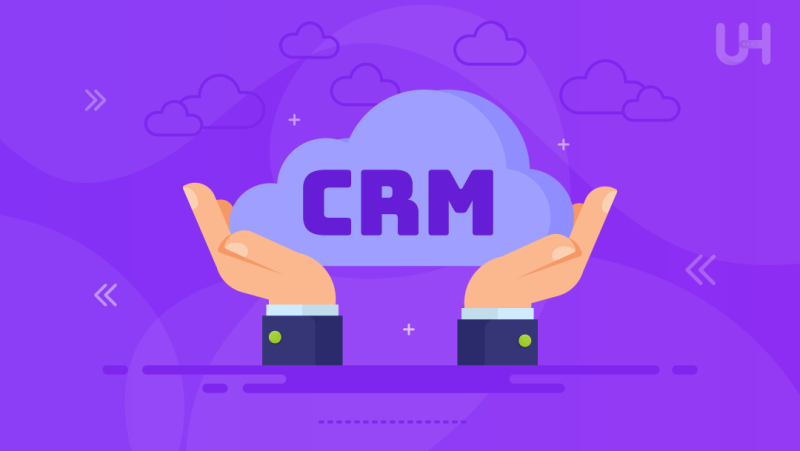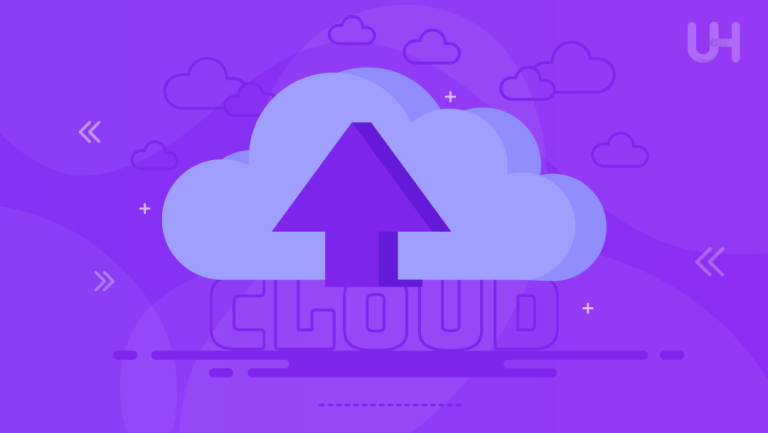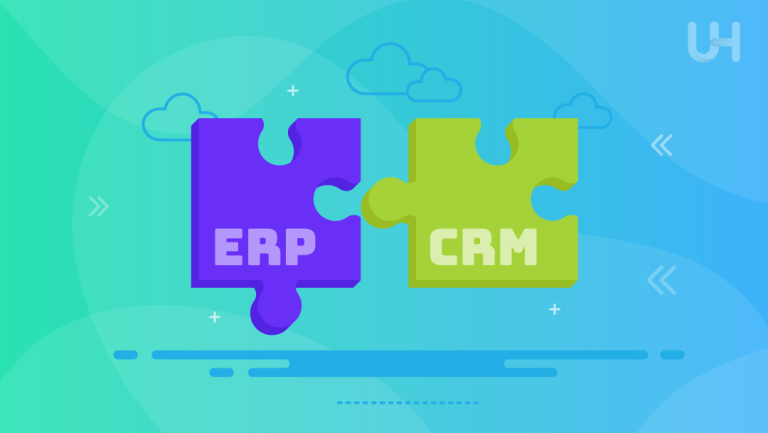CRM has been an indispensable constituent in today’s business processes. Cloud-based CRM, also called a hosted CRM solution, allows enterprises to gain access and handle customer information, interactions, and selling processes from any part of the world without going through the hassle of maintaining expensive in-house IT infrastructure by using cloud-based computers. That way, one can pay more attention to the growth of the customer experience and the business, leaving the maintenance and security of the CRM software to be dealt with by a third-party provider.
In this article, we will examine hosted CRM, the different types, and some key features and benefits. By the end, you’ll be aware of how implementing hosted CRM immediately revolutionizes your business’s customer relations, increases productivity, and increases profitability.
What is Hosted CRM?
Web-based CRM is customer relationship management software hosted on some dedicated remote server that one can use with an internet connection. On-premise CRM means customer relationship management, which is embedded in the server on which the businesses are hosted in exchange for software installation. While on hosted ones, it is managed by third-party vendors. The provider will take care of the maintenance of the software, updates, issues on security, and infrastructure of the server so that businesses are free to focus on customer-centric activities.
With hosted CRM, organizations can store information about their customers, record communications, manage sales cycles, and produce reports without maintaining heavy technical resources at the client site. Hosted CRM offerings take the form of subscriptions whereby organizations pay monthly or yearly fees for the use of the software. Moreover, these systems can be scaled upwards if the organization needs them to, putting them within reach of businesses of any size that desire an alternative.
Types of Hosted CRM
While explaining what a hosted CRM is, it is important to delve into the various types offered in the market. Each type comes with its own benefits, which often vary based on the stakeholder organization’s size, requirements, and preferences. The following are the major types of Hosted CRM systems:
Cloud CRM
Cloud CRM is most often applied among hosted solutions. Your customer data and CRM software are stored together on the service provider’s servers, and you can access them over the Internet. Cloud CRM is usually easy to set up and, as a rule, is available by subscription. This is ideal for small and medium-sized businesses that look for cost-effective and scalable solutions that will not heavily tie up vast investments in IT substructure.
Because the infrastructure is shared, cloud CRM tends to be the cheapest. However, it also means businesses might have less control over customization and data privacy in return, though leading providers utilize seriously tight security measures. Cloud CRM best fits small to medium-sized businesses with standard CRM needs and a limited budget.
Private Cloud CRM
Only the business in question is allowed access to the server environment with Private Cloud CRM. The payments go to extreme personalization, whereby companies can mold and shape them as desired. The infrastructure not being shared by any other organization gives the business greater control over security, compliance, and data management.
Private cloud CRM tends to be more expensive than public cloud CRM. Still, it is the best choice for organizations requiring a high level of business customization and/or operating under rigidly regulated industries like finance or healthcare. Because of its security, private cloud CRM is preferred by large enterprises that tend to deal with sensitive customer data.
On-Premises Hosted CRM
On-premises hosted CRM provides a company-owned, facility-dedicated server. It entails massive amounts of internal IT to manage and update the system. It finds applications in companies that want total control of their CRM infrastructure and would want to handle data security, backups, and maintenance alone. Though this guarantees the highest level of control, it could be more expensive regarding setup and maintenance.
Hybrid CRM
Hybrid CRM combines the merits of cloud and on-premise solutions. In this model, each business can store less sensitive information within the cloud and keep critical or sensitive information in a server on-premise. This will allow organizations to leverage the scalability and accessibility of cloud solutions while having complete control over their most important data.
It is best suitable for organizations that require equal affordability and data security. The hybrid cloud CRM is perfect for businesses that deal with many day-to-day customer interactions and confidential information.
Managed CRM
With Managed CRM, the solution means that a third-party supplier is responsible for hosting, configuring, managing, and updating CRM. Due to managed CRM, multitasking businesses are freed from responsibility regarding monitoring and maintaining CRM infrastructure. They can now be wholly devoted to their core activities.
It is the right type of CRM for businesses with limited IT resources or expertise because updating, keeping things secure, and performance monitoring are the provider’s headaches. Most managed CRM solutions can be customized and expanded. Thus, they have various advantages concerning both operational ease and flexibility.
Features of Hosted CRM
Hosted CRM systems have a bunch of features that make the efficiency of managing customer relationships easier. These different functionalities enable businesses to smoothen their operations, raise sales, and enhance customer satisfaction. The following are the minimal features that one can expect from a self hosted CRM:
Centralized Customer Data
One key feature of hosted CRM is that it allows all customer information to be stored in one place. This would include contact details, purchase history, communication records, and also other related information. With all the relevant information being accessible, customer service scores high, and sales teams will be able to relate better with clients.
Sales Pipeline Management
Many hosted CRM systems offer an array of tools to help you manage your sales pipeline. Businesses can nurture leads, follow up with sales, and also forecast revenues using such hosted CRM systems. Lastly, sales teams can identify bottlenecks in the sales process to ensure no lead falls through the cracks.
Automation
The other important feature of hosted CRM is automation. A business can automate routine activities, such as sending follow-up emails, fixing appointments, or creating invoices. Automation saves time and ensures that tasks are completed without fail, thereby increasing overall productivity.
Transform Your Business with Premium CRM Hosting!
Looking for a reliable and scalable hosted CRM solution? UltaHost offers powerful CRM hosting services that take the hassle out of managing your customer relationships. You can now focus on growing your business while we handle the backend.
Reporting and Analytics
Hosted CRM solutions provide advanced reporting and analytics. Companies can develop detailed reports about the efficiency of selling, customer behavior, and also marketing campaigns. This information allows businesses to make decisions based on the facts at hand, observe trends, and adjust business strategies to achieve better results.
Integration Capabilities
A good hosted CRM will integrate with the email marketing platform, accounting software, and e-commerce system running on e-commerce hosting, among other necessary business tools. This provides for easy data exchange within the business, also enhancing efficiency in different departments.
Benefits of Hosted CRM

Implementing a hosted CRM system will help your businesses in many ways, be it in improving customer service or streamlining processes that will increase your bottom line. Some of the key benefits are:
Cost Savings
The most critical advantage of hosted CRM is financial in nature. For example, it negates the need for a costly hardware-software installation and amplifies the capability to avoid topped-up maintenance costs for on-premise servers. Typically, hosted CRM is provided on a subscription basis, enabling companies to budget with more predictability.
Scalability
Hosted CRM systems are highly scalable. As the business grows, so does its CRM plan. It is very easy to upgrade and increase the number of users, storage, and also additional features. That, in turn, allows businesses to grow without the headache of outgrowing their CRM system.
Accessibility and Mobility
Since it’s cloud-based, online CRM means access is available from anywhere that has an internet connection. This is particularly good news for businesses with remote teams or employees scattered around who must have access to customer information while in the field. Also, mobile access lets sales teams update data and get in touch with customers from any location.
Enhanced Collaboration
With hosted CRM, different teams can collaborate via a single platform where they can refer and share information. This aligns all sales, marketing, and also customer service activities under the same data execution to facilitate seamless customer experiences.
Security and Data Backup
Data security is one of the top priorities considered by hosted CRM providers. Many of these solutions are preventive measures against a breach or loss of customer data, offering advanced encryption, frequent security updates, and also automatic data backups. This, in turn, gives businesses more assurance about the security and recoverability of their data in an emergency.
Conclusion
Hosted CRM is a powerful tool used to mold the business, bringing a huge change in customer handling and smooth processing, leading to growth. Indeed, there are different types of hosted CRM; businesses can choose the one that best suits their needs. Flexibility, scalability, and cost-effectiveness are the feature elements of CRM, making it attractive for all sizes of businesses that look to improve their customer management capabilities. Investing in hosted CRM can improve productivity, better decision-making, and stronger customer loyalty.
Reliable web hosting is key to seamless performance and security in your hosted CRM. With UltaHost’s dependable, high-speed hosting solutions, you can ensure your CRM system operates flawlessly, keeping your business running smoothly.
FAQ
What is a hosted CRM?
A hosted CRM is a cloud-based customer relationship management system managed by a third-party provider. It is accessible via the Internet without needing on-premise infrastructure.
How does hosted CRM differ from on-premise CRM?
Hosted CRM is managed and maintained by an external vendor, while on-premise CRM requires businesses to manage their servers and software.
What types of hosted CRM are available?
The main types are Public Cloud CRM, Private Cloud CRM, Hybrid Cloud CRM, and Managed Cloud CRM, each offering different levels of security, customization, and scalability.
Who should use a public cloud CRM?
Public cloud CRM is ideal for small- to medium-sized businesses that need a cost-effective, easy-to-use solution without extensive customization.
What are the main features of hosted CRM?
Common features include centralized customer data, sales pipeline management, automation, reporting, analytics, and integration with other business tools.
Can hosted CRM be scaled as my business grows?
Yes, hosted CRM systems are highly scalable, allowing you to add more users, storage, or features as your business expands.
Is hosted CRM secure?
Yes, most hosted CRM providers offer advanced security measures, such as encryption, regular updates, and automatic backups, to ensure data protection and reliability.











